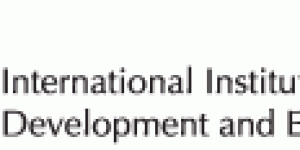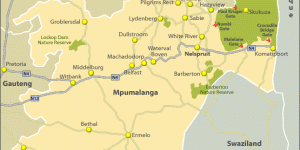IIDE Proceedings 2011~ Re-Integrating Technology And Economy In Human Life And Society ~ Volume II ~ Contents & Preface
No comments yetPreface – See below
Information about the International Institute for Development and Ethics – See below
Information about the Conference Proceedings – See below
Andrew Basden & Hawah Ahmad: Down-to-earth issues in (mandatory) IS use: Part I – Types of Issue
Hawah Ahmad & Andrew Basden: Down-to-earth issues in (mandatory) IS use: Part II – Approach to understand multiple meaning and reveal hidden issues
Samira Atashi & Andrew Basden: Investigating the effects of IS development ethical issues on information systems units
Pieter Lems, Noelle Aarts & Cees van Woerkum: Dealing with differences in framing in multi – actor interactions in water management
Fabian von Scheele & Darek Haftor: Cognitive Distortion Accounted Workload in Service Operations
Sina Joneidy & Andrew Basden: Exploring Dooyeweerd’s aspects for understanding perceived usefulness of information systems
Krishnan Harihara, Subramanian: “Using Dooyweerd’s Aspects to Enrich our Understanding of Idolatry”
Preface
This Volume II, of the 2011 Proceedings of the 17th Annual Working Conference of the International Institute for Development and Ethics, offers seven research papers. Two common items of the first five papers is that they all address various issues of information and communication technology use and that their investigation rests upon Herman Dooyeweerd’s theory of multiple aspects of reality. While the remaining two papers focus inter-human communication and time in human operation, respectively, all seven papers presented here deal with normative aspects of human affairs – in that sense all contributions here address human interest in our world. The papers are introduced shortly, as they appear, in the following.
Andrew Basden and Hawah Ahmad, with their “Down-to-earth issues in (mandatory) IS use: Part I – Types of Issue”, contribute to the discourse about those kinds of information systems that are mandatory in use. Their starting point is that “use is not serviceable as a guide to evaluating the quality of such use as experienced by stakeholders”, as many “down-to-earth issues that are crucial to such quality are overlooked”. They suggest that a new approach is required, which is based on what is meaningful in everyday life, that in turn may be comprehended by means of H. Dooyeweerd’s notion of multiple modalities of human existence. They conclude that such an approach “provides a philosophical underpinning for not only understanding the nature of down-to-earth issues, nor just showing their diversity, but also for explaining why the notion of DTE issues is needed for analysis and understanding of IS use.”
Hawah Ahmad and Andrew Basden, in the “Down-to-earth issues in (mandatory) IS use: Part II – Approach to understand multiple meaning and reveal hidden issues”, build their argument on the previous paper here, and thereby further advances our understanding of mandatory use of information systems, by means of the application of H. Dooyeweerd’s multimodal theory. The authors present a single case study that makes them derive the conclusion that it is actually possible to obtain an in depth understanding, and to reveal the hidden issues, of mandatory IS use. The authors conclude with the thesis that the here proposed approach is more practical for information system evaluation than other currently employed approaches for such an end.
Samira Atashi and Andrew Basden, in their “Investigating the effects of IS development ethical issues on information systems units”, address the debate of the likely effects of ethical issues of information system development on the consequent information systems as such. By means of theoretical study, the authors attempt to apply Dooyeweerd’s theory of aspects or reality to ethical issues within the development of information systems and thereby explore and analyses their consequences of functioning regarding good and bad.
Subramanian Krishnan Harihara presents his work in progress in the “Using Dooyweerd’s Aspects to Enrich our Understanding of Idolatry”. This addresses the idolization of technology as a potential cause of the problems. In order to unearth such an idolization, various conceptual means have been advanced. The present contribution shows how H. Dooyeweerd’s aspects of reality may be related to Goudzwaard’s notion of idolatry; this gives rise to a discussion of how Dooyeweerd’s aspects contribute to the understanding of idolatry as a cause of problems in e-government.
Sina Joneidy and Andrew Basden, in their “How aspects of everyday life contribute to opening the ‘black box’ of Perceived Usefulness: Understanding the meaning of usefulness constructs”, offer a meta-theoretical investigation of the seminal Technology Acceptance Model (TAM). For more than the past two decades, TAM has been developed by a diverse community of researches with the intention to provide explanation of human computer usage behavior and also to predict individual adoption and use of new information and communication technologies to answer the question of: why do not people make use of ICT more? In its current state, the conceptualization of perceived usefulness, within the TAM, is somewhat of a black box; it utilizes some 70 various constructs for its measurement. These constructs are not coherently organized, rather overlapping and competing. In their aspiration to remedy this situation, a re-conceptualization is initiated here. The latter is advanced by means of an attempt to obtain elaborated understanding of each construct available with the help of H. Dooyeweerd’s philosophy of everyday life. The authors suggest that “this can lead to a more penetrating understanding of IS usefulness.”
Pieter Lems, in his “The communication of water managers in participatory processes and their effect on the support for implementation: A case study in the Netherlands” addresses the general dilemma of finding a balance between a policy and its social support, here in the case of water management in the Netherlands. By exploring the communication processes of water manager, the presented case study suggests that emphatic communication enables for a water manager to handle conflicting aims.
Fabian von Schéele and Darek Haftor, in their “Cognitive Distortion Accounted Workload in Service Operations”, highlight the generally overlooked phenomenon of the gap between the physical-time and the cognitive-time, which gives rise to the so-called cognitive time distortion. The latter is here elaborated rigorously and thereafter incorporated into the current understanding of an economic organization, i.e. a firm, with regard to the work time-load, both planned for and actually consumed by people within such organizations. A novel Workload Equation is introduced based upon the classic Total Profit Equation; the introduced equation may have a dramatic impact on our understanding and thus on the management of economic organizations, both their health and their financial performance.
This Volume represents a collection of papers that all provide thought provoking inquiries into urgent issues of our current world, so much dominated by technology and economic affairs. In his, the position assumed is of human interest as the primer one. All presented contributions here have a character of working papers that present research in progress. This in turn guarantees that the proposals put forward here are novel and not to be found elsewhere.
Editors: Christine G. van Burken & Darek M. Haftor
Information about the Annual Working Conferences
As an essential for the execution of its research, the IIDE sustains an international North-South network of senior academic researchers and their PhD students who are affiliated with different universities and institutions in the Netherlands, UK, Sweden, and South Africa[i].
One of its activities is the organisation of Annual Working Conferences (AWC) at the beautiful venue of the Emmaus Priorij at the river Vecht in Maarssen, near Utrecht, Netherlands. At these week-long events in April or May, participants present papers on their current research, receive comprehensive critical mentoring, and respond with ideas on how their research will be continued.
The formula of these AWC’s has proved very successful in generating a flow of high quality papers, informing PhD research, and sharpening up ideas on a wide range of issues. The research of the past has resulted, amongst other things, in a series of Proceedings. The papers that are accepted have been sent out for a peer review. The title of each volume is borrowed from a Discussion paper which aims to foster the ongoing reflection at the AWC’s on the mission of the IIDE and its broad research agenda.
NOTE
i. This North-South network, formerly named the Centre for Philosophy, Technology and Social systems (CPTS), operates since 2010 within the organisational framework of the IIDE.
The following Proceedings have been published since 2002:
(2002) On the Connections Between Philosophy, Technology and Systems Sciences, edited by Johannes D. Bijkerk, Jan van der Stoep, Sytse Strijbos. Amersfoort: CPTS. ISBN 90-807718-1-3.
(2003) Towards a New Interdisciplinarity, edited by Rob A. Nijhoff, Birgitta Bergvall-Kåreborn, Anita Mirijamdotter, Sytse Strijbos. Amersfoort: CPTS. ISBN 90-807718-2-1
(2004) Interdisciplinarity and the Integration of Knowledge, edited by Marc J. de Vries, Birgitta Bergvall-Kåreborn, Sytse Strijbos. Amersfoort: CPTS. ISBN 90-807718-3-X
(2005) Towards Humane Leadership, edited by Albert Helberg, Jan van der Stoep, Sytse Strijbos. Amersfoort: CPTS. ISBN-10: 90-807718-4-8 and ISBN-13: 978-90-807718-4-0
(2006) Integrating Visions of Technology, edited by Andrew Basden, Anita Mirijamdotter, Sytse Strijbos. Maarssen: CPTS. ISBN-10: 90-807718-5-6 and ISBN-13: 978-90-807718-5-7
(2007/2008) The Problem of System Improvement, edited by Andrew Basden, Darek Eriksson, Sytse Strijbos. Maarssen: CPTS. ISBN 978-90-807718-6-4
(2009) Systems Thinking and Philosophy as Interdisciplinarity, edited by Andrew Basden, Leenta Grobler, Darek Eriksson. Maarssen: CPTS. ISBN 978-90-807718-6-4
(2010). Interdisciplinary Research for Practices of Social Change, edited by Roelien Goede, Leenta Grobler, Darek Haftor. Maarssen: CPTS. ISBN 978-90-807718-8-8
You May Also Like
Comments
Leave a Reply









